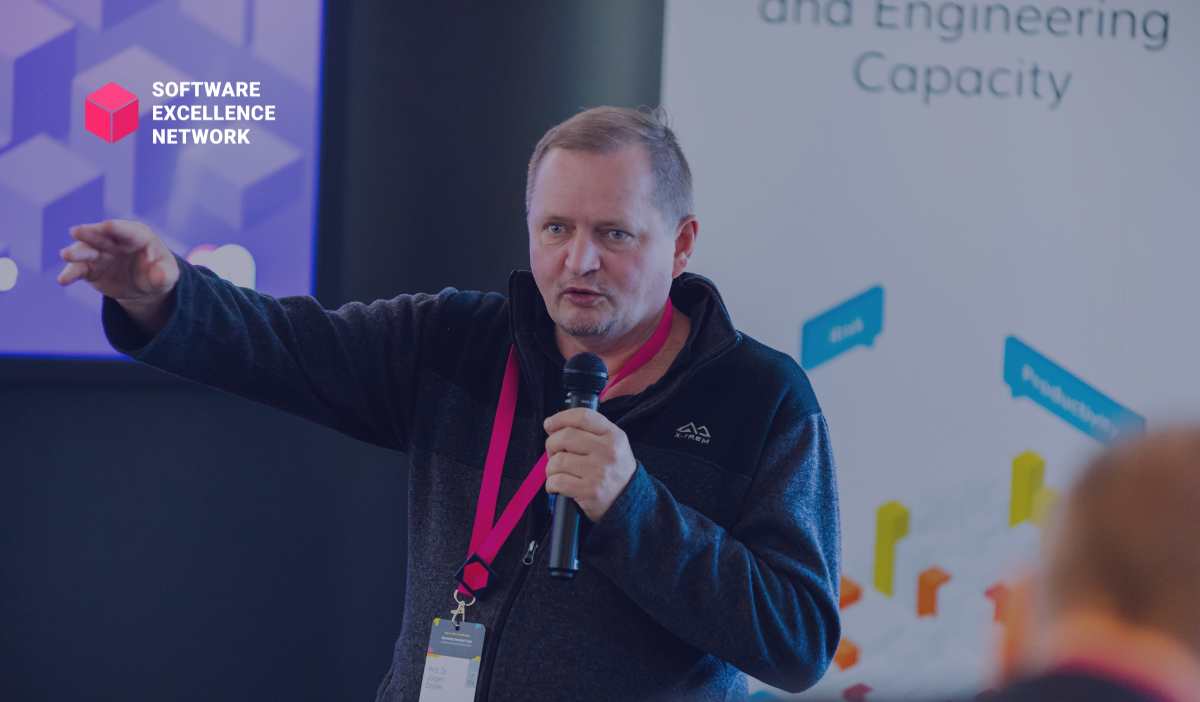
At the forefront of digital innovation, Prof. Dr. Jürgen Döllner from the Hasso Plattner Institute shared an enthralling vision of the future of software engineering at the Envisioning Tomorrow's Code executive exchange. His keynote spanned the transformative power of generative AI and the shifting paradigms in software development, drawing from his extensive expertise as an educator and researcher. Here's a breakdown of the two compelling stories he presented about the evolving landscape of software engineering.

Prof. Dr. Döllner began by exploring the profound impact generative AI will have on software engineering, predicting a near-complete overhaul within the next decade. He argued that AI’s ability to program more effectively than humans marks the dawn of a new era for large-scale, complex software systems.
The AI Advantage in Programming
Generative AI has access to vast repositories of code and learns from millions of examples, enabling it to develop software faster and with higher quality. Unlike human programmers who rely on memory and expertise, AI remembers all past implementations flawlessly, allowing it to generate and refine code with remarkable precision.
To harness this potential, Prof. Dr. Döllner highlighted the importance of preparing current systems for AI-driven development:
Shifting Roles of Developers
In this AI-augmented future, developers' roles will evolve:
Prof. Dr. Döllner’s second story delved into how AI like ChatGPT has already demonstrated its ability to generate software dynamically, as needed. This paradigm challenges the traditional approach of maintaining static, prebuilt software systems.
Dynamic Software Generation
Using examples like exploratory data analysis with large datasets, he explained how generative AI can:
This approach represents a fundamental shift:
Case in Point: Generative Excellence in Data Analysis
Prof. Dr. Döllner illustrated this concept with an example: asking ChatGPT to analyze complex datasets. The AI not only selected the appropriate dimensionality reduction algorithms but also implemented them with precision, outperforming even experienced human analysts in speed and breadth of tool usage.
Dr. Döllner’s masterclass underscored several key takeaways for the future of software engineering:
Prof. Dr. Döllner closed his talk by acknowledging the challenges of predicting the future but expressed confidence in AI’s transformative potential. By embracing these advancements, the software industry can achieve unparalleled efficiency, scalability, and innovation.
His insights are a call to action for businesses, educators, and technologists alike: the future of software development isn’t just about writing better code—it’s about reimagining the entire process. As AI continues to evolve, the possibilities are as vast as they are exciting.
About the Software Excellence Network
This masterclass was part of the Envisioning Tomorrow's Code executive exchange, which was hosted by the Software Excellence Network. The mission of the Software Excellence Network is to find solutions to the core problems facing corporate software development via open dialogue and the exchange of ideas among top IT leadership and academia. Interested in finding out more, click here.
A Note to Our Readers
This article provides a journalistic summary of the ideas shared by Prof. Dr. Jürgen Döllner during his presentation. While we’ve highlighted the key concepts and innovations he discussed, the full depth of his insights and examples can only be appreciated by watching the complete session. If you’re intrigued by these ideas and want to hear them explained directly by the speaker, we encourage you to watch the full video of his presentation. If you have any questions or concerns, please contact us.
These Stories on Events/Webinars
August-Bebel-Str. 26-53
14482 Potsdam, Germany
hello@seerene.com
+49 (0) 331 706 234 0
Generative AI Seerene GmbH
August-Bebel-Str. 26-53
14482 Potsdam, Germany
hello@seerene.com
+49 331 7062340